-

Namita: consolidating market share
Another subsidiary is Zuventus, which focusses on marketing products in the Indian market (along with Emcure’s own marketing divisions). Zuventus is led by Prakash Guha, (57), MD at Zuventus Healthcare Ltd. Guha has 37 years of experience, having held many leadership positions in the Indian pharmaceutical industry. Zuventus, under his leadership, created many benchmarks in the industry. “Currently the company holds leadership position in multiple brands and within therapies in the branded generics space,” says Guha who earlier worked with Alkem Laboratories as the President – Sales and Marketing and at Wander Limited as DMD.
Genesis, growth plans
Emcure started in 1981 as a firm spotting an opportunity in contract manufacturing pharmaceuticals for MNCs. Although the company began as contract manufacturer for MNCs, a decade after its inception, it introduced its own products in the market. Mehta, a first-generation entrepreneur, started Emcure with the intention of providing affordable and high quality healthcare to patients to significantly improve their lives. Under Mehta’s leadership, Emcure has become a well-respected name in the global pharma market and he is the prime mover for the growth plans of the company.
With him at the helm, Emcure, is today engaged in developing, manufacturing and marketing a broad range of pharmaceutical products globally. “The company has world-class infrastructure, skills and resources with facilities approved by foreign drug regulatory authorities of various countries including US, Europe, Russia, Australia and Brazil. Mehta has also been instrumental in Emcure entering into strategic alliances with MNCs to bring world-class products to the Indian market at affordable prices,” adds Mehta boasting of the research programme comprising chemistry and biotechnology with a number of firsts to market molecules in India. Mehta is a 1975 batch graduate from the IIM Ahmedabad.
Over the years, Emcure has launched multiple first-time molecules in India. Emcure also introduced the concept of chirality in India. The company is a leader in anaemia and the women health segment. It has also developed Tenecteplase for acute ischemic stroke and launched it for the first time globally in 2019. Emcure has a leading market share in four of the six biosimilars that it has launched in India.
“Gennova is currently undertaking clinical trials of India’s first mRNA vaccine for Covid, which it has developed indigenously. We have already demonstrated safety, immunogenicity, and production of neutralising antibodies (antibodies that directly attack the virus) activity. In addition, the mRNA used in the vaccine is attached to a nano-lipid carrier that delivers it inside cells. This self-amplifying platform means a lower dose of the vaccine is required. Gennova has received a seed grant under the Ind-CEPI mission of the Department of Biotechnology, which is aligned to the global Coalition for Epidemic Preparedness Innovations (CEPI),” says Dr Sanjay Singh, (54) CEO, Gennova, who is at the forefront of the research team.
Singh completed his graduation and post-graduation in science (biochemistry) from Lucknow University and is a PhD in biochemistry from the Central Drug Research Institute, Lucknow. He then went on to the International Centre for Genetic Engineering and Biotechnology (ICGEB), where he continued research on vaccine development. He has been associated with Gennova since 2006 and his scientific expertise has led to several innovations to treat life-threatening diseases.
Prior to joining Gennova, Singh worked with the National Institute of Health (NIH), US, where he headed the antigen research section. He has won numerous awards from the US Department of Human and Health Services, some of which include ‘Special Act or Service Award’ in 2005 and ‘Staff Recognition Award, NIAID/NIH' in 2004.
-
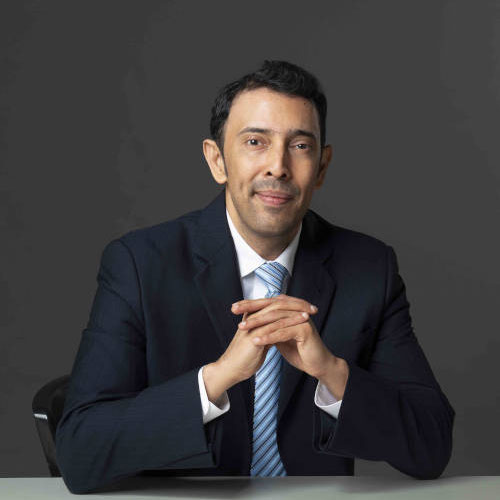
Samit: healthy domestic business
Leader in women health segment
Starting with a team of just seven people, Mehta now employs over 9,000 people and sells the company’s products in over 70 countries. As per the latest AIOCD-AWACS MAT ranking, from 75th rank back in 1995 in the IPM (Indian Pharmaceutical Market) today Emcure is ranked among the top 12 companies (July 2021). Emcure is one of the fastest growing companies in the top 20 pharma manufacturers in India.
It is also a market leader in cardiac, gynaecology, blood-related and HIV antiviral therapy areas. Emcure develops and sells a wide range of branded and generic formulations, API and biotechnology products in markets including India, Europe, Canada, Russia and nations across Latin America and the Middle-East through a strong global network of 19 subsidiaries.
“Our competitive advantage in the domestic market stems from our established presence in most of the major therapeutic areas including gynaecology, cardiovascular, vitamins, minerals and nutrients, oncology/anti-neoplastic, HIV and blood-related. Emcure is a leader in the women’s health segment in India. In addition, our focus areas include neurology, respiratory, psychiatry-CNS and anti-diabetic therapeutic areas,” says Vikas Thapar, (47) president, corporate development & strategy at Emcure, who is Satish’s son-in-law pointing at the company’s six R&D centres and 14 manufacturing facilities across the country.
Prior to joining Emcure, Thapar worked in Silicon Valley, US with Ebay/PayPal as well as Agilent Technologies (where he worked in finance). He has a track record with 23 years of work experience and has been an integral part of the Emcure management team for the last 15 years. His expertise has been in providing value-added business and financial support to multiple companies across different industries. Initially, he looked at business development and later his role expanded to include corporate strategy and finance.
He has played a crucial role in spearheading Emcure’s growth in Europe and Canada; besides he has led Emcure’s inorganic growth strategies over the years and has spearheaded acquisitions of various companies, brands and product portfolios. He has also driven Emcure’s various fundraising efforts.
With an academic background in sciences, and a family business of Mehta’s father in pharmaceutical distribution, he had a penchant for pharmaceuticals. Emcure began with a loan of R3 lakh, acquiring a manufacturing unit, and starting as a contract manufacturer of pharmaceutical products for most of the multinational players in India. And, since Mehta understood pharma distribution well, the company ventured into marketing its own brands.
In 1981, Mehta, together with his family, supported the business by reinvesting inter-nally generated profits and pumping in additional funding from time to time. The only outside investment was by private equity (PE) investor Blackstone that came in 2006. It was also Blackstone’s first investment in India.
Then, in 2013, Bain Capital bought out Blackstone’s stake in the company and it now owns 13 per cent. “The company has also relied upon debt from time to time to fund various growth initiatives and M&A opportunities,” says Namita Thapar, (44) ED, India Business at Emcure.
Namita is the daughter of Mehta, who joined Emcure as CFO, post her six-year stint at Guidant Corporation, US. She is an MBA graduate from the Fuqua School of Business and a CA from ICAI. Subsequently, her responsibilities grew to managing Emcure’s largest business unit, the India business. She has played an instrumental role in driving Emcure’s growth in the domestic business, being actively involved in consolidating the market share of brands and the quick scale-up of newly introduced brands.
-
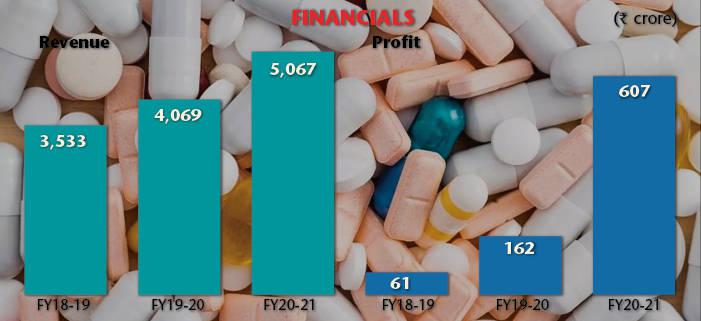
Namita has also been at the forefront of Emcure’s technology initiatives, focusing on data analytics and sales force effectiveness. She is passionate about improving women’s health in India and promoting youth entrepreneurship. She has taken concrete steps to move the needle on both. “During the Covid pandemic, we launched a unique YouTube talk show on women’s health called Uncondition Yourself which aimed at providing authentic information and break stigmas and taboos associated with women’s health and urged women to prioritise their health,” says Namita whose outfit Incredible Ventures Ltd – an education company that teaches entrepreneurship to 11-18-year-olds in Mumbai, Delhi, Bengaluru, Pune, Chennai and Ahmedabad – has been in existence for five-plus years. About 1,000 young students have gone through this life-shaping experience so far.
Going international
Samit Mehta, (41) president & COO of Gennova, is the son of Mehta. Samit believes that, “the company has a healthy domestic business and strong prospects to capitalise in the IPM as well as in the other countries it operates in. We have an established presence in international markets, which we believe is a strong complement to our domestic business and presents strong opportunities for growth. We sell our portfolio of products internationally, with Europe and Canada currently being our primary international markets. We employ a calibrated and differentiated approach to entering and deepening our presence in each of our markets so as to address the unique characteristics of each market, such as, among other factors, its regulatory landscape, market size, competitive landscape and scope for our products. This allows us to strategically select local partners, acquire local companies or rights of pharmaceutical products, and establish subsidiaries with our own on-the-ground sales force in these markets”. For strategic reasons, Emcure has now demerged the US business into a separate company. This was done to facilitate better capital allocation as the company has multiple opportunities in its other businesses.
For instance, “we have made strategic acquisitions of companies such as Marcan in Canada and Tillomed in the UK, which have allowed us to leverage our R&D and manufacturing capabilities in India and, at the same time, quickly and cost-efficiently establish distribution channels for our products in Canada and Europe, respectively. We have also acquired the rights of pharmaceutical products, such as BiCNU, a branded oncology product prescribed for treatment of brain tumours, multiple myeloma, Hodgkin’s disease and non-Hodgkin’s lymphoma, which has allowed us to expand our presence in our existing markets as well as facilitate our entry into new markets”.
The second phase for Emcure began in 1995, followed by exports and international expansion. Over the last decade, Emcure has developed a significant international business. Today, more than half of Emcure’s revenues come from overseas operations.
According to a CRISIL report, as a result, Emcure has grown its target markets in several international geographies. For example, in Canada, since acquiring Marcan in 2015, it has become one of the country’s leading Indian generic pharmaceutical companies. Similarly, in Europe, it has increased the product portfolio from two products in FY14 before it acquired Tillomed, to more than 150 products in FY21. Emcure also has subsidiaries in Peru, Mexico, Australia, Germany, Spain, Italy, New Zealand, France, Dubai, Brazil, South Africa and Nigeria and a branch office in Russia, which play an important role in liaising and managing operations in these markets.
“Our focus in our international markets is on developing and commercialising products, which are differentiated and require significant expertise to develop and manufacture, and, as such, are subject to less competition and allow us to enjoy high margins,” says Vikas disclosing that, “for example, in Europe and our other key target markets, we are focused on higher value-added generics and complex injectables, such as Cidofovir and Meropenem. We have also launched our biologics products and chirally pure products in many countries, including Brazil, Mexico, Russia and South Korea. We believe that our market specific growth strategies have allowed us to deepen our presence in our existing markets as well as, at the same time, expand into other markets in a cost efficient and profitable manner”. As a result, Emcure’s sales outside India between FY19 and FY21, grew at a CAGR of 32.80 per cent from Rs1,430 crore to Rs2,523 crore.
-
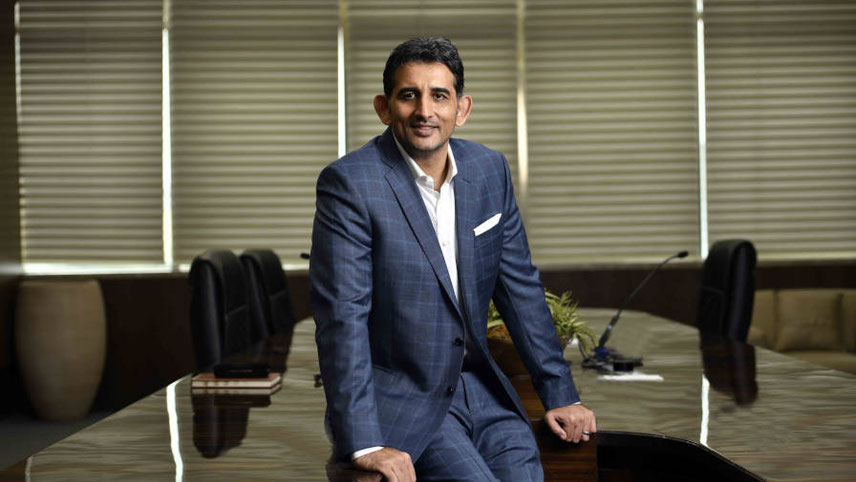
Vikas: spearheading Emcure’s growth in Europe and Canada
Competitive environment
As per AIOCD data, on MAT basis (August 2021), Emcure is among the top 12 companies in IPM. Emcure’s competition varies by market, therapeutic area and product category. “Our principal competitors within India include leading branded generics players such as Cipla, Dr Reddy’s, Torrent Pharma and Sun Pharma as well as leading multinational pharmaceutical companies such as Sanofi, Abbot and GlaxoSmithKline, which operate in the Indian pharmaceutical market, in similar therapeutic areas,” says Mehta talking about Emcure’s strong portfolio of biosimilars among Indian companies. Of the six biosimilars sold by the company in Indian market, it is a leader in four of the segments.
“Our impressive growth can be attributed to four key factors: a strong R&D focus, our manufacturing expertise, vertical integration and strong sales and distribution”, says Samit with a vertically integrated organisation manufacturing APIs, formulations and biotechnology drugs.
“From the start, our focus has been on science, bringing differentiated products and in-troducing new innovations in India backed by our R&D and manufacturing strengths. Our strategy for R&D is to establish differentiated technology platforms and, once estab-lished, develop multiple products on the platforms”, says Vikas, with five R&D facilities in India and, as of June 30, 2021, “we had 501 highly qualified scientists, 15 of whom are postdocs, 39 of whom hold PhDs and 381 of whom are post graduates. We have been granted 161 patents and have 98 pending patent applications in several countries, and have also submitted 98 DMFs for APIs with various regulatory agencies across the world”.
Emcure is also one of the few companies with strong expertise in both chemistry and biologics. The company has been constantly introducing new products to the markets. “We have multiple first time launches to our credit including chiral molecules, iron molecules, ARV and bio-therapeutics. In the domestic market, we classify our products on the basis of their therapeutic use. Over the last decade, we have been increasing our focus on chronic therapeutic areas and, as of June 2021, we were present in a total of 19 therapeutic areas,” adds Mehta, who sells over 350 brands across these 19 therapeutic areas in India.
For FY21, according to CRISIL, seven of Emcure’s brands were among the top 300 brands in India, based on domestic sales of pharmaceutical products. These include Orofer-XT and Orofer-FCM, which are generally used in gynaecological treatments, Bevon, which is used as a nutritional supplement, Zostum, which is used as an anti-infective, and Metpure XL, ESLO and EXHEP, which are generally used in the treatment of cardiovascular disease.
According to CRISIL, 18 of its top 20 brands, that include anti-infectives, vitamins, minerals and nutrients, and which are used in the treatment of gastrointestinal ailments and HIV, cardiovascular and respiratory therapeutic areas, as well as in gynaecology, were each ranked among the top five pharmaceutical products of their respective therapeutic areas in India.
-
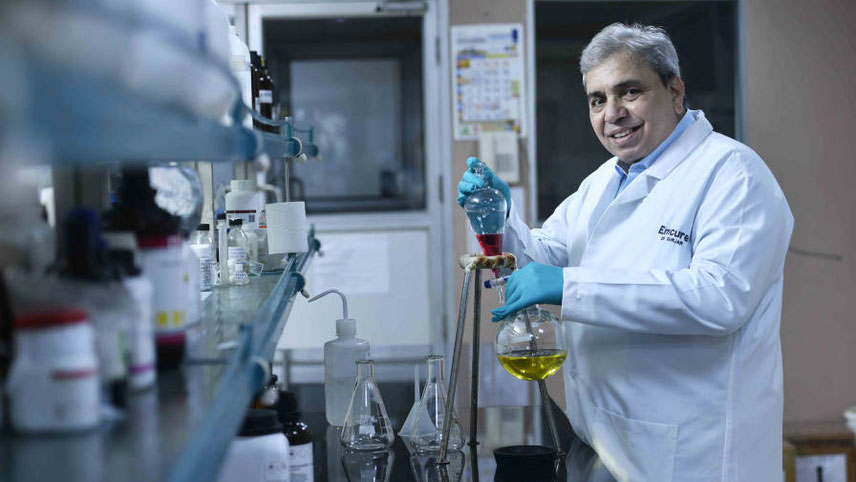
Gurjar: playing a vital role
Strong marketing capability
“Our strong sales and distribution team has allowed us to deliver these new molecules pan-India and establish Emcure among the leaders in our target areas. We have strong marketing and distribution capabilities,” says Mehta. As of 30 June, 2021, Emcure’s marketing and distribution network in India is supported by a specialised field force of over 4,600 personnel. “The strength in marketing and distribution has been acknowledged and leveraged by several leading multinational pharmaceutical companies that we have entered into agreements with for the marketing and in-licensing of their products in India and overseas,” adds Samit.
“During the pandemic, our vertical integration and strong supply chain helped us to maintain production and when required, to ramp-up the production of essential medicines. Our R&D expertise also allowed us to launch critical products during this period,” discloses Namita adding that “most of our products are differentiated, which makes us least exposed to drug price controls. At present, only 16 per cent of our portfolio comes under price control, one of the least among our peers, resulting in minimum revenue erosion”.
The company is well-positioned to benefit from its leading position in the domestic pharmaceutical market. It has a longstanding market presence and, since it began focusing on Indian domestic branded generics in 1995, its business has grown., Based on sales in India in FY2021, Emcure was ranked as the 12th largest pharmaceutical company in India and the largest pharmaceutical company in India in the gynaecology, blood-related and HIV antivirals therapeutic areas.
Meanwhile, over the last three financial years, Emcure has outgrown the Indian pharmaceutical industry in terms of sales in India in several of its key therapeutic areas. “Our portfolio is focused towards pharmaceutical products used in chronic therapeutic areas, which we believe are therapeutic areas with the highest growth potential in India,” adds Mehta.
“The domestic market dynamics and landscape are very conducive for us to continue to leverage our existing and growing product portfolio and further develop and grow our business. Two more positive indicators are the growing population and, in turn, growing demand for medicine generally, with India expected to become one of the top ten countries in the world in terms of spending on medicine over the next few years, and favourable initiatives and schemes from the Government of India to encourage companies to manufacture ingredients domestically and support the growth of the domestic pharmaceutical industry.”
Like Indian companies made a mark in global generics, bio-similars is an emerging area for Indian pharma. “We have healthy respect for our peers in the space. Every company has its differentiating strategy and accordingly chooses molecules for research and development,” says Mehta. Emcure has total six commercialised products. For Tenecteplase, it has a global patent for Acute Ischemic Stroke (AIS). For Pegaspargase, “we are the first company in India to launch this. In addition, we have a robust pipeline portfolio for mRNA vaccines, including vaccine for Covid.”
Biocon has a similar number of commercialsed produts. Global pharmaceutical market has grown by around 4.5-5 per cent CAGR from approximately $1,090 billion in calendar year 2016 to approximately $1,270 billion in calendar year 2020. It is expected to sustain this growth over the next five years to reach approximately $1,650-1,700 billion in calendar year 2026. New product launches, population aging and sedentary lifestyles leading to increased chronic disease prevalence, technological advances, new methods for drug discovery, and an increase in pharmaceutical drug usage have been some of the key growth drivers for the industry.
-
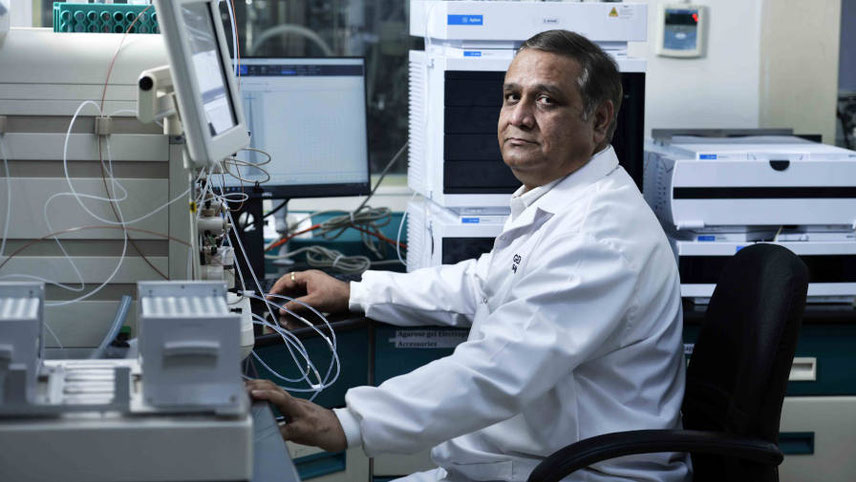
Singh: at the forefront of the research team
Oncology is the largest therapy area in pharmaceutical market by value with close to 16 per cent share in pharmaceutical sales in 2019. It is one of the more expensive areas to develop new therapeutic drugs. Around 40 per cent of R&D spend in pharma sector goes into oncology segment. The growth of oncology sales can be partly attributed to the growth of the immune-oncology sub-segment. Oncology, anti-rheumatics and anti-diabetics have been the fastest growing therapeutic segments in the last five years. Rising incidence of diabetes aided growth in the anti-diabetics segment.
Compare to global pharmaceuticals market, the Indian domestic formulations market (consumption) grew at a healthy rate at 7 per cent CAGR over the last three years from FY18 to FY21. Domestic formulations segment is expected to grow at approximately 9-11 per cent CAGR over the next six years from the FY20 to FY26 driven by strong demand in generic segment. The domestic formulations demand is expected to reach Rs2.6-2.7 trillion by fiscal 2026.
Fruitful association
Some of the key growth drivers for the Indian Pharmaceutical industry are the increasing prevalence of noncommunicable diseases like cardiovascular disease, stroke, cancer, dia-betes and chronic lung diseases. Also a growing population and, in turn, growing demand for medicine generally, with India expected to become one of the leading countries in the world in terms of spending on medicine over the next few years will fuel the growth of the Indian pharmaceutical market. Along with these factors, favourable initiatives and schemes from the Government of India to encourage companies to manufacture ingredients domestically (PLI scheme) will support the growth of the domestic pharmaceutical industry.
“From the time we started with Emcure, our strength has grown over eight times to covering more than 500 hospitals now,” observes Anil Kandi of Om Pharma a pharmaceutical distributor in Secunderabad, who began with six employees catering to three divisions and has now grown to 45 people covering 11 divisions.
“It has been a very fruitful association and we now cover almost all the of the twin cities of Hyderabad and Secunderabad and the peripherals of the GHMC limits. Working with Emcure has taught us many good practices including setting of up processes for doing business in a systematic way. Our distribution model has adopted many useful systems of operation, which would not have happened otherwise. From installation and upgradation of software to improving distribution facilities, transportation and adoption of best quality packing, we have benefitted from our association with Emcure. What we really appreciate is the company’s management of operations during tough situations like Covid-19. The professionals at Emcure ensured a smooth and uninterrupted supply of critical and routine medicines,” adds Kandi, who has now been associated with Emcure for more than 23 years.
Says Ashish Bagmar, Sanjivani Agencies from the pharmaceutical distributors, in Pune who started in 2001: “It was an era of competition and as a new stockist I had to struggle in the initial phase. I was fortunate to work with Emcure. For over a decade, I have been an authorised stockist for the company and it’s a matter of great satisfaction and pride for us. It’s mainly because of the equity of the organisation Emcure and their brands in the market. I have not observed any negative fluctuations throughout this period. More im-portantly, because of Emcure we are growing much better than the rest of the market. Hats off to the management and the policies of Emcure”.
-

Guha: creating benchmarks
“Emcure has always been pioneers for chirality and I love these molecules in my day-to-day practice as they have less metabolic load and less side effects. This helps us to have better control and improved compliance in patients. Emcure has products like Elaxim that have saved the life of many patients. Also, Emcure has been leading from the front for new molecules like Vildagliptin, Ferric Carboxymaltose 1K and Rivaroxaban that have benefitted many patients,” discloses Dr H.K. Chopra, Me-danta-Moolchand Heart Institute.
As a doctor specialising in Women’s health at Mumbai based Ashwini Maternity & Surgical Hospital, Dr Jaydeep Tank, says: “I know that recurrent miscarriages, infertility, preterm labour and threatened abortions, are just some of the problems where progesterone is useful for management. Dydrogesterone is a valuable part of this management to ensure good outcomes. Dydrofem, developed indigenously by Emcure, is by all accounts an experience and quality product and is very useful in the therapy of these patient.”
“My treatment of epilepsy is going on at Ahmedabad. I have taken Emcure’s product Emlevo 500 for two years. Now I am well and Emcure’s product is good. Thanks to Emcure for serving society,” says Prakash Nayak, an Ahmedabad epilepsy patient.
Growth opportunities
“We intend to continue consolidating our position and increase market share in our key and leading therapeutic solutions. We plan to do so by increasing the penetration of our key brands, developing other strong and domestically recognised brands for these thera-peutic areas, and launching new products to address unmet patient needs. We also intend to continue to grow our position and increase our market share in some of our other therapeutic areas, such as neurology, anti-diabetics, respiratory and gastrointestinal,” concludes Mehta.
Emcure is also working to increase the productivity of its sales force penetration across the domestic market with an increased focus on hospitals and pharmacy chains as well as in rural and semi-rural parts of India where “we believe there is significant growth potential for our products”.
There is limited competition globally, and therefore significant growth opportunities, in the development, production and commercialisation of novel drug delivery systems, bio-pharmaceuticals and mRNA products to address life-threatening diseases across various indications. “As such, we intend to make substantial investments directed towards devel-oping and increasing our manufacturing capabilities for novel drug delivery systems, in-creasing our biopharmaceuticals manufacturing capabilities to facilitate the launch of new biologics in the global markets, and transitioning to commercial mRNA vaccine produc-tion”, says Samit who has filed over 1,500 dossiers globally for products offered through differentiated product platforms, such as chiral molecules, complex injectables including liposomal and lyophilised injectables, extended release, iron molecules and biologics products based on differentiated technologies.
-
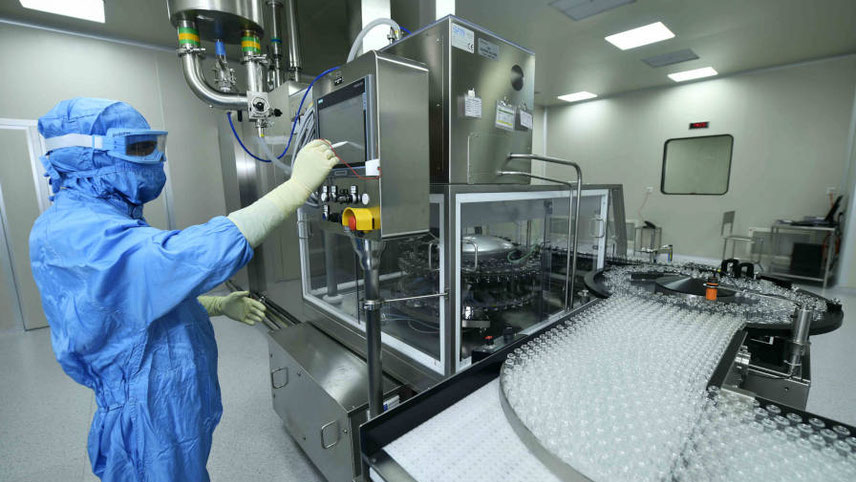
Emcure has five R&D facilities to constantly introduce new products
Finally, Emcure has filed a DRHP with SEBI to raise funds through the IPO route with a fresh issue as well as an offer for sale. The fresh issue of equity shares will aggregate up to Rs1,100 crore, and the offer for sale will be for up to 18,168,356 equity shares that includes a sale by the promoters – Satish Mehta of upto 2,030,000 equity shares – and by Sunil Mehta of upto 250,000 equity shares. Other selling shareholders include PE investor Bain Capital, as well as certain individual selling shareholders.
Although the issue price and market capitalisation will be shared as per compliance, the issue price is based on several factors hence the same cannot be assumed. However, the market men expect the market capitalisation in the range of Emcure’s peers as on 12 No-vemeber 2021: for Abbott India it was (Rs41,970 crore); Alkem Laboratories (Rs42,460 crore); Biocon (Rs41,637 crore); Cipla (Rs73,884 crore); Dr. Reddy’s (Rs80,559 crore) and Torrent Pharmaceuticals (Rs47,205 crore), to name a few.
Emcure proposes to utilise net proceeds from a fresh issue of Rs948 crore towards the repayment of all, or a portion of its debt. The pre-payment or repayment will help reduce its outstanding indebtedness and finance cost, maintain a favourable debt-equity ratio and enable deployment of its internal accruals for further investment in business growth and expansion.
In addition, since the debt-equity ratio will improve significantly, it will enable the company to raise further resources in the future to fund potential business development opportunities. The company will also use a small portion of its IPO proceeds for general corporate purposes. Emcure also intends to continue to pursue strategic acquisitions of companies, products and facilities across key markets as well as in-license pharmaceutical products of other companies for its key and focus therapeutic areas, which would allow it to both deepen the presence in its existing markets and facilitate entry into new markets.
Beyond the mRNA vaccine for Covid, “we also intend to continue developing our pipeline for Zoster, Zika and Rabies mRNA vaccines which we intend to launch in India and internationally over the coming years”.










































